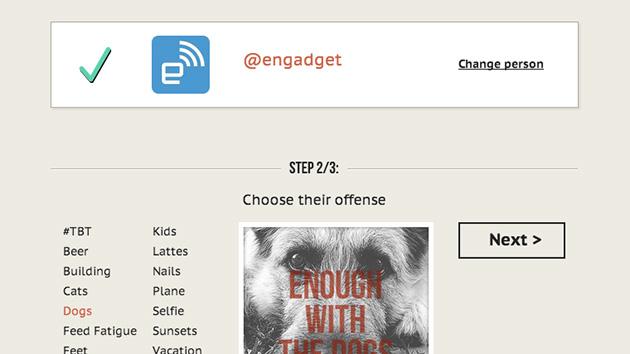anonymous
Latest

Anonymous says it's outing 1,000 prominent KKK members (updated)
Anonymous is no stranger to risky internet activism, and its latest campaign is no exception to the rule. The hacking-focused collective claims that it's outing "up to" 1,000 people who are either Ku Klux Klan members or "close associates" of KKK factions. It says it'll reveal all on November 5th, but an early data leak already purports to name-and-shame mayors, members of Congress and police officers (including cops in Ferguson, Missouri). If true, the details would potentially wreck more than a few careers -- especially those of people who use roundabout methods to support the Klan while keeping their racist connections a secret.

Journalist found guilty of assisting Anonymous hacks
Former Reuters journalist Matthew Keys was arrested back in 2013 over claims that he'd helped the activist group Anonymous compromise and deface the LA Times by handing over login information. He has denied the allegations (he was supposedly trying to get a story about Anonymous), but that didn't hold water in court: a jury has found Keys guilty of hacking-related charges. The conviction could theoretically put Keys in prison for up to 25 years when sentencing takes place in January, although officials say that they'll likely seek less than 5 years given that this wasn't the "crime of the century."

Yik Yak now allows anonymous photo sharing, just not selfies
Yik Yak announced today that it will now allow users to post photos to the anonymous messaging app -- just so long as they don't include human faces. That means you'll be able to share photos of your dog, your meal and non-reproductive body parts, just not your face. Seriously, don't even try. The company will be actively monitoring photo posts (before they go live) in an effort to maintain content control. Users, however, will still be allowed to show pictures of themselves as part of photo collections in the Explore section of Peek. Additionally, the company rolled out phone verification in an effort to combat spam and make the app a bit more secure.

Cyberattack takes down Canadian government websites
It's not just the American government that's facing withering internet attacks in recent days. Canadian officials have confirmed that a "cyberattack," likely a denial of service campaign, has taken down government websites on the gc.ca web domain -- which, if you know the country, means that virtually every federal institution is inaccessible online. Many government email accounts are largely out of commission as well. It's not clear whether the assault has compromised any sensitive data, but traffic floods like this are typically focused more on knocking sites out of commission than swiping info.

Thirty Meter Telescope's website was hacked to protest its construction
A lot of people are obviously still unhappy that the Thirty Meter Telescope's (TMT) construction was greenlit, because the project's website was reportedly hacked on Sunday. A group called Operation Green Rights, which is associated with Anonymous, claims to be the brains behind the DDoS attack that took down the the TMT portal for a few hours. A post on its website says: "Nothing will ever justify the destruction of ecosystems; filthy money can never replace them. Stand with the Hawaiian natives against #TMT." The group also claims to be behind another DDoS attack on Hawaii's local website.

Daily Roundup: Apple Watch battery life, Russian combat bots and more!
One of the biggest complaints about smartwatches is their mediocre battery life. It sounds like the Apple Watch will be no different. In other news, internet activist Barrett Brown was sent to prison for five years and Russia showed off some "combat robots" that still have a lot to prove, fortunately. Catch up on today's top stories after the break.

Internet activist Barrett Brown sentenced to five years in prison
After already having served 28 months in detention, U.S. District Judge Sam Lindsay has sentenced journalist and supposed Anonymous spokesperson Barrett Brown to five years behind bars for acting as an accessory after the fact to an unauthorized access to a protected computer. That was the only one of three remaining charges against Brown that actually stuck, stemming from an offer Brown made in hopes of helping Jeremy Hammond, an imprisoned hacktivist who made public millions of emails from the servers of security firm Stratfor.

Secret reboots its anonymous sharing app in search of a future
Secret first sprung into life in February 2014 as an app/social space where people could get together and engage in real talk, all while leaving their real names checked at the door. It generated Silicon Valley acquisition rumors. It sparked IRL dinner parties (complete with masks). And, as is often the case for the buzzy startup du jour, it got stale. So, what's a beleaguered company to do? Well, if you're Secret, you completely redesign your iOS and Android apps in hopes people fall in love with it again. Of course, a new coat of paint and some bolt-on features might not be able to change Secret's underlying problem.

Facebook's anonymous Rooms is a chat app that feels like the old days
Facebook's new Rooms app is weird, and it isn't long after installation that you figure out why. You don't log in with your Facebook credentials. Your profile picture appears nowhere. It doesn't tap into your contacts. If Rooms' iOS-only App Store listing didn't proudly proclaim it was a Facebook product, you'd almost certainly never know it was brewed within the social giant's cavernous confines. Seems a little off-kilter for a chat app, especially one with this pedigree. Instead, it just lets you create those eponymous Rooms -- they're like those AOL chatrooms of yore, dedicated to any topic (or no topic at all) and augmented with the the ability to moderate posts like a power-tripping VIP on a forum. When it's spelled out like that, doesn't it all sound just delightfully anachronistic? Update: Did you have trouble downloading Rooms earlier? You're not the only one, but those problems should be resolved, click here to give it another shot.

'Whisper' app accused of not hiding whistleblowers
Whisper lets you share secrets without the fear of it getting traced back to you. At least that's the pitch. Now, according to a Guardian report, the service is tracking the location of users that didn't want to be tracked. The report, which deep dives on several issues regarding user privacy and security, adds that Whisper is apparently also sharing info with the US Department of Defense and is retaining posts and user data in a searchable database. Responding to the claims, Editor-in-chief Neetzan Zimmerman says that Whisper "neither receive(s) nor store(s) geographical coordinates" from users who opt out of geolocation services. "User IP addresses may allow (a) very coarse location to be determined to the city, state, or country level."

Engadget Daily: Facebook tackles anonymity, Vaio post-Sony, and more!
Zuckerberg and Co. are in hot water regarding the social giant's real-name policy, but it looks like all the outcry may have paid off. Well, sort of. Read on for Engadget's news highlights from the last 24 hours, including Facebook's purported anonymity app, Vaio's new hybrid tablet, a magical product called Carrot, and more!

Facebook's reportedly working on a mobile app for anonymity
Social media giant Facebook drew ire from some users recently due to its strict real name policy. Some even fled for Ello -- madness! Now, it looks like Facebook's responding to complaints with a mobile app "that allows users to interact inside of it without having to use their real names." That's according to two people speaking with The New York Times, anyway; the sources also said the app is set to launch "in the coming weeks." Facebook's long held policies requiring verified email addresses, originally requiring college-specific email address logins per its collegiate origins. Those policies clashed recently with drag queens, some of whom had their profiles outright removed from Facebook (by algorithms). It's not clear how this app would affect web-based Facebook use, if at all, and Facebook's not saying a peep thus far. A Facebook rep told Engadget, "We don't comment on rumor or speculation."

Engadget Daily: 'Halo 2: Anniversary,' problems with Secret's secrecy and more!
Today, we anticipate the visual glory of Halo 2: Anniversary, learn that a monkey can't own photo rights, sit down without a chair, investigate problems with Secret's anonymity and more! Read on for Engadget's news highlights from the last 24 hours.

If Secret isn't anonymous, we're all screwed
People have been airing their dirty laundry and slinging shade on Secret -- an anonymous sharing app -- for months now. Who could blame them? It's fun, it's freeing and accountability basically doesn't exist there... or so some may believe. Kevin Poulson at Wired spoke to a security researcher named Ben Caudill and the takeaway is clear: your secrets aren't necessarily as secret as you think. And the kicker? The process of tying real people to the things they said was a shockingly simple one if you understand how Secret finds and displays people's messages.

Apple blocks access to Secret in Brazil after anti-bullying ruling
A few days ago, a Brazilian judge ordered Apple and Google to pull Secret from the local app store and wipe it from the handsets of whose who had downloaded it. The same ruling covered Microsoft, who was ordered to do the same to Windows Phone clone Cryptic. So far, however, only Apple has begun to comply with the order, after suspending fresh downloads of the app to iOS accounts registered in Brazil. According to local news media, the company hasn't started pulling the software from individual handsets, but that's still more than Google or Microsoft have done. Both companies claim that they've not been directly notified of the widely-reported ruling, although it's more likely that they're waiting on a final decision from the courts before taking any action.

Parties for Secret users get you spilling the beans in real life
Part of the allure of Secret's app is supposed to be the anonymity; you can confess your innermost thoughts without facing any accusing fingers. However, people are now using Secret as a launching pad for parties where the very point is to confide in others you can see across the table. As Recode notes from first-hand experience, it's like seeing the app unfold in real life. Rather than make small talk, guests share their sincerest feelings about family and relationships -- you may find more about a stranger in a few hours than you would by following them on Facebook for a year. Even meeting up is dependent on revealing interesting tidbits, so you end up breaking the ice before you know anyone's names.

Anonymous email app Leak is down due to overnight success
The anonymous email app Leak just launched in late July, but it's already been shut down -- for the time being, at least. The service, which lets you send emails to anyone without identifying yourself, was built over a weekend, and its creators used the Mandrill (MailChimp) API rather than building an email server of their own. Mandrill suspended the team's account -- likely because Leak didn't conform to the service's focus on opt-in emails -- so now the minds behind Leak are scrambling to find a new solution. If you can't wait for another opportunity to send an anonymous confession to your coworkers, you can keep tabs on this page to see when Leak is back. And hey, there are always the Secret and Whisper apps in the meantime.

Vent: A semi-anonymous app that feels your pain
I really enjoy the anonymous sharing app Secret, as the posts are quite often hilarious and I'm usually able to narrow down a sharer's identity to two or three people. (Those Engadget in-jokes are a real telltale.) For the same reasons that I like reading Secret, though, I'd never consider posting on the app myself. If I were to share anything remotely personal, I'd want to get as far away from my extended group of friends and colleagues as possible. That's why I found a relatively new app, called Vent, so intriguing. Currently available on iOS (with an Android version on the way), it does exactly what its name implies: It lets you vent. And the best part is that your contacts list stays out of the picture -- you're sharing with random users who stumble upon your posts, and your profile can remain as anonymous as you like.

Pic Nix lets you anonymously shame Instagram friends, with some help from a robot (updated)
The blight of oversharing on Instagram is nothing new. Luckily, the image-based social network gives you a very easy solution for cutting out unwanted brunch photos: unfollowing. If you aren't prepared to diss a friend that strongly, though, A&G Labs has a more passive-aggressive option for you. Its Pic Nix website allows you to anonymously tell friends that the selfies and sunsets have to stop.

The hacker who helped the FBI stop cyberattacks is now a free man
Lead LulzSec hacker Sabu (aka Hector Xavier Monsegur) was no doubt hoping for leniency when he turned informant, and it looks like his gamble has paid off. A federal court has sentenced him to the time he served in 2012, letting him walk away a free man. As prosecutors explain, Monsegur was a very "productive cooperator" -- he provided complete, detailed information that helped the FBI take down LulzSec and stop a string of cyberattacks against both corporate and government targets, including Sony.









